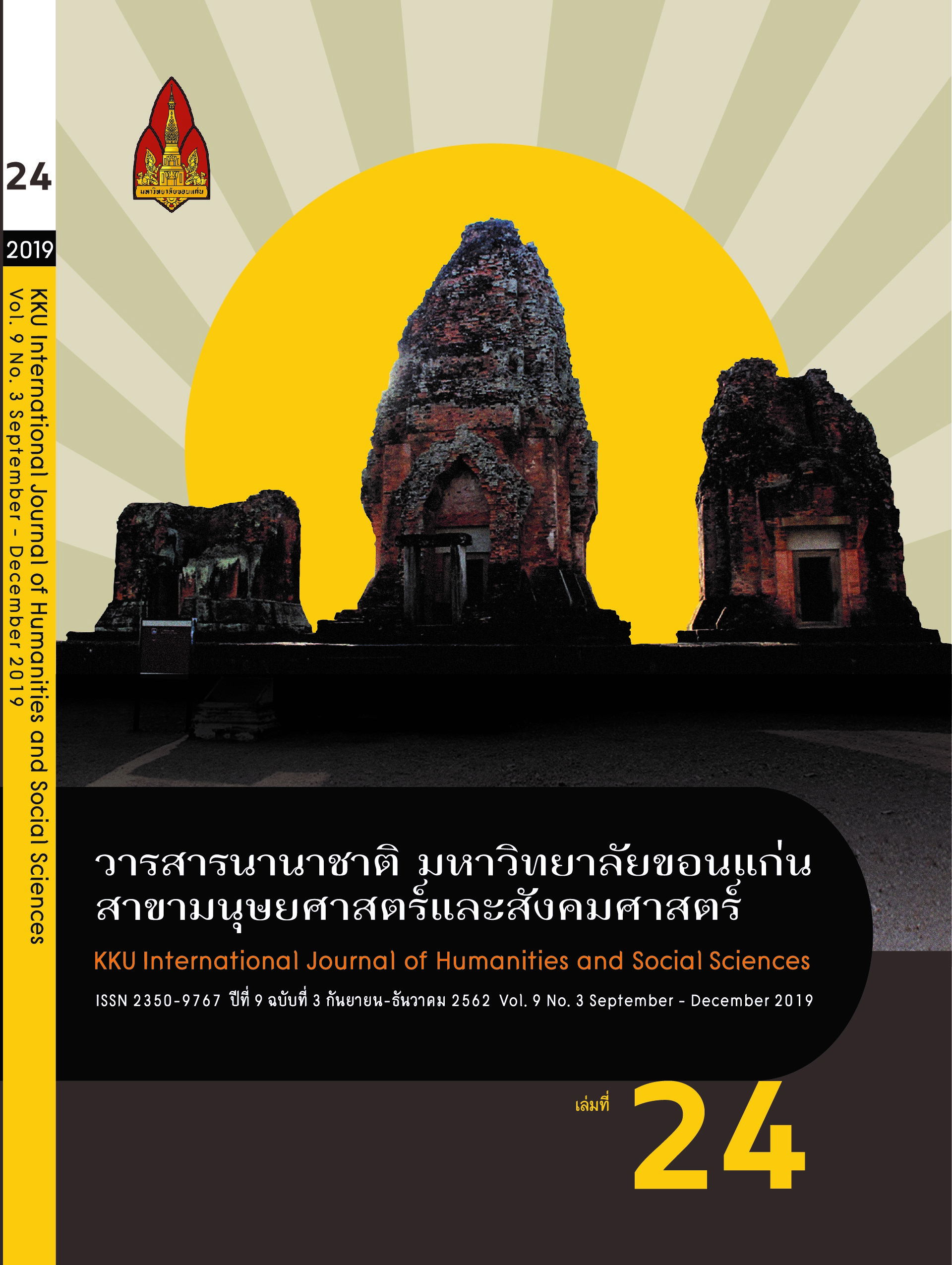Interventions and Attitudes of special education teachers in Thailand on challenging behaviors of students with disabilities: A case study A CASE STUDY
Main Article Content
Abstract
Abstract
This research aimed to identify what the strategies or interventions, data collections, and attitudes of the special education teachers in a school in Thailand currently applied and had with students with disabilities who demonstrate challenging behaviors. There were 52 special education teachers from the laboratory school in Bangkok, Thailand were recruited by using convenience sample design. Both survey questionnaire and interview data were collected. The findings indicated that the special education teachers respond to students’ challenging behaviors in similar pattern. When students demonstrated challenging behaviors the special education teachers chose to respond to the behaviors using some strategies rather than using ignorance strategy. The data collection that the special education teachers used the most was observation in order to find the cause of the behaviors before applying interventions to decrease the challenging behaviors. Discussion and limitations of this research were discussed.
Article Details
References
Cook, C. R., Mayer, G. R., Wright, D. B., Kraemer, B., Wallace, M. D., Dart, E., … Restori, A. (2012). Exploring the link among behavior intervention plans, treatment integrity, and student outcomes under natural educational conditions. Journal of Special Education, 46(1), 3–16.
Dukes, C., Rosenberg, H., & Brady, M. (2008). Effects of training in functional behavior assessment. International Journal of Special Education, 23(1), 163–173.
Hastings, R. P., & Brown, T. (2002). Coping strategies and the impact of challenging behaviors on special educators’ burnout. Mental Retardation, 40(2), 148.
Ingram, K., Lewis-Palmer, T., & Sugai, G. (2005). Function-based intervention planning comparing the effectiveness of FBA function-based and non—function-based intervention plans. Journal of Positive Behavior Interventions, 7(4), 224–236.
Katsiyannis, A., Conroy, M., & Zhang, D. (2008). District-level administrators’ perspectives on the implementation of functional behavior assessment in schools. Behavioral Disorders, 34(1), 14–26.
Kritzer, J. B. (2014). A four country comparison: Special education in the United States, China, India and Thailand. British Journal of Applied Science & Technology, 4(23), 3370.
Machalicek, W., O’Reilly, M. F., Beretvas, N., Sigafoos, J., & Lancioni, G. E. (2007). A review of interventions to reduce challenging behavior in school settings for students with autism spectrum disorders. Research in Autism Spectrum Disorders, 1(3), 229–246.
Puenpueng, A., Singhalert, R., Simmathan, P., & Odton, M. (2008). The adaption of aggressive behavior of autistic grade 1 students be reinforcement with token economy in Thai language exercises. Rajabhat Maha Sarakham University Journal, 2(2), 151–162.
Sukkasame, S., Channate, R., & Naksuwan, J. (2011). The techniques of visual communication experience: The aggressive behavior of children with autism: Department of Special Education-Rajanukul Institutions. Rajanukul. Retrieved from https://www.sedthailand.com/images/introc_1355940749/03pic.pdf
Suwanakasa, B., & Tantixalerm, C. (2012). Effects of using check in/check out program to reduce undesirable behaviors of lower secondary school students with special needs. An Online Journal of Education, 7(1), 2161–2174.
Vorapanya, S., & Dunlap, D. (2014). Inclusive education in Thailand: Practices and challenges. International Journal of Inclusive Education, 18(10), 1014–1028.
Westling, D. L. (2010). Teachers and challenging behavior: Knowledge, views, and practices. Remedial & Special Education, 31(1), 48–63.


